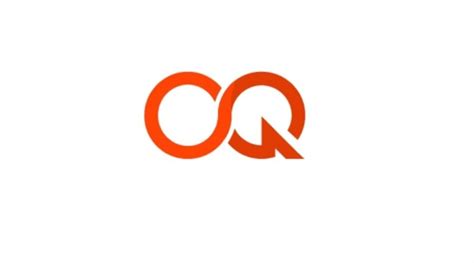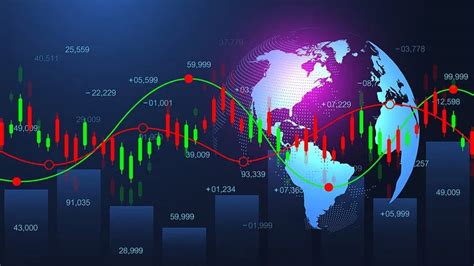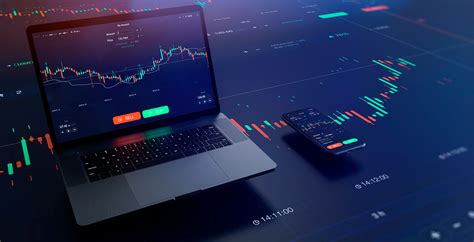

In today's fast-paced financial markets, ensuring the security of your trades has never been more important. The OQtima trading platform offers traders a robust, secure environment designed to protect every aspect of their trading experience. With increasing concerns about online threats, it's essential to choose a platform that prioritizes user safety. Whether you're a retail investor or an institutional trader, understanding how OQtima safeguards your data and transactions is crucial for a successful trading journey.
OQtima Trading Platform Security Overview
The OQtima trading platform is designed with a suite of security measures to protect traders' assets and personal information. Understanding how these mechanisms work is crucial for anyone looking to trade with peace of mind.

OQtima employs a robust infrastructure to guarantee a secure trading environment. From secure data storage to high-level authentication processes, every aspect is designed with protection in mind. The platform ensures that sensitive data, including login credentials and financial transactions, is kept safe through a combination of encryption and advanced security protocols.
<1> Key Security Features of OQtima
High-grade firewalls protecting server networks.
Frequent security audits and vulnerability assessments.
Regular system updates to patch potential vulnerabilities.
Secure client-server communication channels using TLS protocols.
OQtima employs state-of-the-art encryption methods to safeguard both user data and financial transactions. All sensitive information transmitted over the platform is encrypted using industry-standard protocols, including AES-256 encryption. This ensures that hackers cannot easily intercept or read the data. Moreover, OQtima encrypts its entire database to protect against data breaches, offering peace of mind to every investor and trader.
<step 1> How Encryption Safeguards Data on OQtima
Encryption protocols like AES-256 secure user data both in transit and at rest.
Encryption keys are regularly rotated to enhance security.
End-to-end encryption ensures that data is only accessible by the intended recipients.
Two-factor authentication (2FA) is a vital component of the security measures on OQtima. By requiring users to verify their identity through a secondary step, such as a mobile app or email verification, OQtima adds an extra layer of protection against unauthorized access. This significantly reduces the likelihood of account compromise, making it harder for attackers to gain access even if they have stolen login credentials.
Phishing and other forms of fraud are major concerns in online trading, and OQtima takes these threats seriously. The platform uses advanced fraud detection algorithms that can identify suspicious activity and send alerts to users and administrators. Furthermore, OQtima employs automated anti-phishing tools that prevent malicious websites from targeting users by matching URLs with trusted sources.
| Feature | Description | Benefit |
|---|---|---|
| URL Matching | Automatically compares the URL with trusted sources. | Prevents phishing attempts. |
| Suspicious Activity Monitoring | Detects abnormal trading patterns and notifies users. | Alerts users to potential fraud. |
| Phishing Detection Alerts | Provides immediate alerts if phishing attempts are detected. | Increases user awareness. |
By implementing these tools, OQtima ensures its platform remains secure, minimizing risk and fostering trust for all users.

Regulatory Compliance and Security Standards in OQtima
OQtima prioritizes regulatory compliance and robust security standards to ensure a safe and trustworthy trading environment. Adhering to global financial regulations is essential for safeguarding investor interests.
KYC (Know Your Customer) and AML (Anti-Money Laundering) regulations are integral to maintaining a secure and compliant trading platform. By verifying the identity of users and monitoring transactions for suspicious activity, OQtima ensures that it remains compliant with international anti-money laundering laws. These measures help prevent fraud, money laundering, and other illegal activities that could undermine the security of the platform.
<1> Key Components of OQtima's KYC and AML Policies
Identity Verification: Ensures users submit valid identification documents to confirm their identity.
Transaction Monitoring: Continuously checks for irregular transactions to detect money laundering or terrorist financing activities.
Customer Risk Assessment: Uses risk profiling to determine the level of scrutiny required for each user.
OQtima is committed to aligning with global financial regulations such as GDPR (General Data Protection Regulation) and MiFID II (Markets in Financial Instruments Directive). These regulations set high standards for data protection, client transparency, and market integrity. By complying with these laws, OQtima offers a secure trading platform where investors can confidently manage their financial assets, knowing their personal information and trading activities are protected under global legal frameworks.
Transparency and accountability are vital to fostering trust within the OQtima community. Through comprehensive audit trails, the platform records every action taken by both users and administrators, ensuring that all trades and account modifications can be tracked. Real-time reporting features further enhance transparency by allowing traders to access up-to-date information on their positions, trades, and account balances at any time.
| Feature | Description | Benefit |
|---|---|---|
| Real-time Trade Tracking | Shows ongoing trade status with timestamps and updates. | Provides transparency and ensures accuracy. |
| Account Activity Log | Logs every action, including deposits, withdrawals, and trades. | Helps users track their historical actions. |
| Comprehensive Reporting | Provides detailed reports on performance and fees. | Enhances clarity and decision-making. |
OQtima’s commitment to regulatory compliance extends across major global markets like the US, EU, and Asia. The platform complies with regulations specific to each jurisdiction, including SEC rules in the US, MiFID II in Europe, and local regulations in markets like Hong Kong and Singapore. This ensures that traders from different regions are protected according to local laws, and that the platform operates with transparency and accountability at all levels.
By adhering to stringent financial regulations, OQtima enhances security for investors. Regulatory compliance protects individual traders by ensuring fair practices, reducing the risk of fraud, and promoting transparency. Furthermore, these regulations foster investor confidence, knowing that the platform is legally required to safeguard their financial interests and ensure market fairness.

OQtima Trading Platform Security for Different Users
OQtima provides tailored security features for different types of users, from retail traders to institutional investors. These security mechanisms ensure a safe, efficient, and transparent trading environment for every participant.
High-frequency traders (HFT) rely on speed and precision, where even milliseconds matter. OQtima ensures a secure environment that supports HFT strategies, providing low-latency infrastructure combined with advanced security protocols. To maintain both speed and security, OQtima utilizes cutting-edge technologies that minimize risks of unauthorized access while optimizing performance for high-frequency trading.
<1> Key Security Measures for High-Frequency Traders
Low-Latency Execution: Minimizes delays to facilitate real-time market participation.
Advanced Encryption: Protects sensitive trade data from potential breaches.
Secure API Integration: Offers safe and seamless connectivity to HFT algorithms and external systems.
Real-Time Monitoring: Continuous surveillance of system performance and security to quickly identify and mitigate risks.
OQtima offers customizable security options for retail investors, empowering them to manage their accounts securely. Retail traders can adjust alerts for suspicious activity, monitor their transactions in real time, and use personalized security settings to safeguard their investments.
Retail investors have access to features that help them maintain control over their security, including the ability to set withdrawal limits, enable two-factor authentication (2FA), and receive notifications for any unusual account activity. These options give traders the flexibility to create a security level that suits their personal preferences.
Institutional investors require a higher level of security due to the larger scale of their transactions and portfolios. OQtima provides advanced risk management tools designed to protect these investors through features such as portfolio management, algorithmic trading safeguards, and enhanced risk assessment protocols.
These tools not only reduce the chance of significant financial losses but also provide real-time visibility into the performance of investments. The security of institutional trading is ensured by multi-layered systems that detect and prevent threats before they can impact portfolio integrity. These tools give institutional investors the peace of mind they need to operate in high-stakes financial markets.
<2> Examples of OQtima’s Institutional Security Features
| Feature | Description | Benefit |
|---|---|---|
| Portfolio Management Tools | Advanced algorithms monitor and assess portfolio risk. | Helps maintain optimal portfolio security. |
| Algorithmic Trading Safeguards | Prevents unauthorized or faulty algorithm actions. | Reduces potential errors and security breaches. |
| Real-Time Risk Assessment | Continuous assessment of market conditions and potential risks. | Enhances decision-making with real-time data. |

Advanced Security Features for OQtima Users
OQtima takes a proactive approach to security by integrating advanced tools and technologies that ensure a secure trading experience for all users, from individual traders to institutional investors. These cutting-edge security features safeguard against fraud, enhance risk management, and protect sensitive data.
OQtima utilizes machine learning algorithms to detect and prevent fraudulent activities. By analyzing vast amounts of transaction data, the platform can identify irregular trading patterns and quickly flag suspicious behavior, minimizing the risks associated with fraud.
<1> Machine Learning Features
Pattern Recognition: Machine learning models detect unusual trading patterns and flag potential risks.
Anomaly Detection: Automated systems recognize deviations from normal activity, signaling possible fraudulent actions.
Real-Time Analysis: The system works in real time, offering immediate alerts when suspicious transactions are detected.
Behavioral Profiling: The platform builds user profiles to recognize legitimate activities and spot abnormalities.
OQtima’s real-time alert system notifies traders immediately of any potential security threats. This allows traders to take quick action, such as freezing accounts or stopping transactions, minimizing potential losses or breaches. These alerts are fully customizable, ensuring that each user can tailor their notifications based on their trading activity.
Traders are notified of:
Unusual login attempts
Suspicious withdrawals or deposits
System errors that may indicate security issues
The real-time alert system is an essential tool for maintaining constant vigilance and responding swiftly to any potential risks.
Backtesting is a crucial feature for securing trades before they are executed in the live market. By testing trading strategies against historical data, traders can assess the risk of their strategies and make data-driven decisions before committing funds.
OQtima's backtesting tools allow users to simulate various market conditions, providing insights into how their trades would perform under different scenarios. This helps to minimize risk and maximize potential returns, making trading safer and more informed.
<2> Key Backtesting Features
| Feature | Description | Benefit |
|---|---|---|
| Historical Data Access | Comprehensive data to simulate trades in different market conditions. | Helps identify potential risks and opportunities. |
| Strategy Evaluation | Tools to test trading algorithms and strategies. | Provides insights into strategy performance. |
| Risk Analysis | Evaluation of possible losses and profit potential. | Enhances the trader’s ability to make informed decisions. |
For advanced traders and institutions, OQtima offers a secure API that allows third-party applications to safely interact with the platform. This provides seamless integration with external tools, such as trading algorithms and portfolio management systems, while ensuring data privacy and system security.
The secure API uses advanced encryption protocols and access control to ensure that only authorized services can connect to the platform. OQtima’s API security features protect users from data breaches and unauthorized actions, making it ideal for developers and institutional investors who require high-level integration.
OQtima leverages cloud computing to enhance both scalability and security. By storing data in secure cloud environments, the platform ensures that all trade information is protected from potential threats while providing the flexibility to scale as needed.
The cloud infrastructure is designed with high availability and disaster recovery capabilities, ensuring that the platform remains operational even in the event of hardware failures or cyberattacks. With cloud-based security protocols, users can confidently trade without worrying about data loss or unauthorized access.
OQtima provides robust data analytics tools that allow users to monitor both the security of their investments and the performance of their trades. By analyzing large datasets, traders can gain insights into market trends, portfolio performance, and potential security threats.
These tools use real-time data to track and analyze key metrics, such as trade volume, order execution times, and security alerts. This information empowers traders to make informed decisions and adjust their strategies based on up-to-the-minute insights.
<3> Data Analytics Features
| Feature | Description | Benefit |
|---|---|---|
| Real-Time Data Streams | Access to live data streams for accurate market analysis. | Enhances decision-making with current data. |
| Portfolio Performance Tracking | Continuous monitoring of portfolio metrics. | Helps traders optimize their portfolios and reduce risks. |
| Security Monitoring | Tracks security events in real-time. | Provides immediate visibility into potential threats. |

OQtima Security Best Practices and Trading Tips
To ensure maximum protection while using OQtima, traders should adopt security best practices. These steps, from setting up two-factor authentication to securing personal data, can significantly reduce the risk of breaches and enhance trading safety.
Two-factor authentication (2FA) is an essential layer of security for your OQtima account. Here's a step-by-step guide to setting it up:
<step 1> Log into Your OQtima Account
Open OQtima’s website or app and log in with your username and password.
<step 2> Navigate to Account Settings
Go to the account settings page, usually under your profile or security settings.
<step 3> Select Two-Factor Authentication
Find the 2FA option and click to activate it.
<step 4> Choose Your 2FA Method
You can select between app-based 2FA (Google Authenticator, Authy) or SMS-based verification. App-based authentication is recommended for enhanced security.
<step 5> Complete the Setup
Follow the prompts to link the authentication app or SMS to your account. You will receive a verification code to complete the process.
<step 6> Backup Codes
Download or print the backup codes to regain access in case you lose your device.
This process ensures that even if someone gains access to your password, they won't be able to log in without the second authentication factor.
Creating strong passwords is crucial to protect your OQtima account from unauthorized access. Here are some tips for crafting robust and secure passwords:
Use a Mix of Characters: Include uppercase and lowercase letters, numbers, and special characters (e.g., !, @, #).
Avoid Common Words: Do not use easily guessed words like "password" or "123456."
Make it Long: Aim for at least 12 characters for better protection.
Unique for Every Account: Do not reuse passwords across different platforms.
Enable a Password Manager: Consider using a password manager to generate and store complex passwords.
These practices will help protect your OQtima account from brute-force and dictionary attacks.
Your device is the gateway to your OQtima account. Securing it properly is essential to prevent unauthorized access. Here are some best practices to follow:
Use Anti-Virus and Anti-Malware Software: Ensure your device is protected with reliable security software to block malicious programs.
Enable Device Encryption: Encrypt your device's hard drive to protect your data in case the device is lost or stolen.
Regular Updates: Keep your operating system and software updated to defend against known vulnerabilities.
Secure Your Wi-Fi: Set a strong password for your Wi-Fi network, and use WPA3 encryption if available.
Avoid Public Wi-Fi: If you must use public Wi-Fi, ensure you use a Virtual Private Network (VPN) for secure browsing.
These practices protect your personal information and prevent hackers from accessing your OQtima account through compromised devices.
To protect your sensitive trading data on OQtima, be aware of common online threats, such as phishing and social engineering attacks. Follow these steps to stay safe:
Watch for Phishing Emails: Always verify the sender's email address before clicking any links. Legitimate emails from OQtima will never ask for sensitive information like your password or 2FA code.
Be Cautious with Links: Avoid clicking on suspicious links in unsolicited messages. Always go directly to OQtima’s official website to log in.
Verify Security Websites: Ensure the website URL begins with "https://" and has a valid security certificate (look for the padlock icon).
Don't Share Your Credentials: Never share your OQtima account credentials, even with support agents (OQtima support will never ask for your password).
Enable Account Notifications: Set up notifications for login activity, withdrawals, and password changes to detect unauthorized actions.
By recognizing these threats and taking action, you can protect your OQtima account from common online scams.
<1> Common Online Threats and Protection Tips
| Threat | Description | Protection Tips |
|---|---|---|
| Phishing | Fraudulent attempts to steal credentials via fake emails or websites. | Verify email addresses, avoid suspicious links. |
| Social Engineering | Manipulating individuals to gain sensitive information. | Be cautious with personal information. |
| Malware | Malicious software designed to steal data. | Use reliable anti-virus software. |
| Man-in-the-Middle Attacks | Intercepting data transmission between user and platform. | Always use VPNs and secure connections. |
By following these guidelines and leveraging OQtima's built-in security features, traders can safeguard their accounts and enjoy a more secure trading experience.
Conclusion
In conclusion, protecting your trades on the OQtima trading platform is essential for maintaining a secure and successful trading environment. With a range of advanced security features, including encryption, two-factor authentication, and robust regulatory compliance, OQtima ensures that your data, investments, and financial transactions are well-protected. Whether you are a day trader, an institutional investor, or a retail client, understanding how OQtima incorporates security into its platform is critical to keeping your trades safe from online threats. By adopting the best practices discussed and leveraging the platform’s advanced tools, traders can significantly reduce the risk of unauthorized access and safeguard their investments effectively.
OQtima provides several security features to ensure a safe trading environment, including:These features work together to protect your account and financial transactions.
Two-factor authentication for enhanced login protection.
End-to-end encryption for safeguarding all data transmitted on the platform.
Fraud detection tools that monitor trading activity for suspicious behavior.
OQtima adheres to a variety of regulatory compliance standards to ensure that it meets both local and global security requirements.
It follows KYC (Know Your Customer) procedures for identifying and verifying user accounts.
The platform complies with AML (Anti-Money Laundering) regulations to detect and prevent illicit activities.
It ensures full transparency through audit trails that track every trade and transaction made on the platform.
To enhance the security of your OQtima account:
Always enable two-factor authentication.
Use strong, unique passwords for your account.
Regularly monitor your account activity for any unusual actions.
Yes, OQtima offers secure API access for algorithmic traders and third-party tools. These APIs are designed with security in mind, ensuring that any integration is protected by strong encryption and access controls.
Yes, OQtima provides advanced risk management and security features tailored to institutional investors, including:
Portfolio management tools with secure access for multiple users.
Enhanced risk assessment features to identify potential vulnerabilities in investment strategies.
Customizable security settings to align with institutional needs.
All financial transactions on OQtima are protected by multiple layers of security, including:
Encryption for data transmission to prevent eavesdropping.
Advanced fraud detection systems to spot irregular transactions in real time.
Regular security audits to identify and patch vulnerabilities.